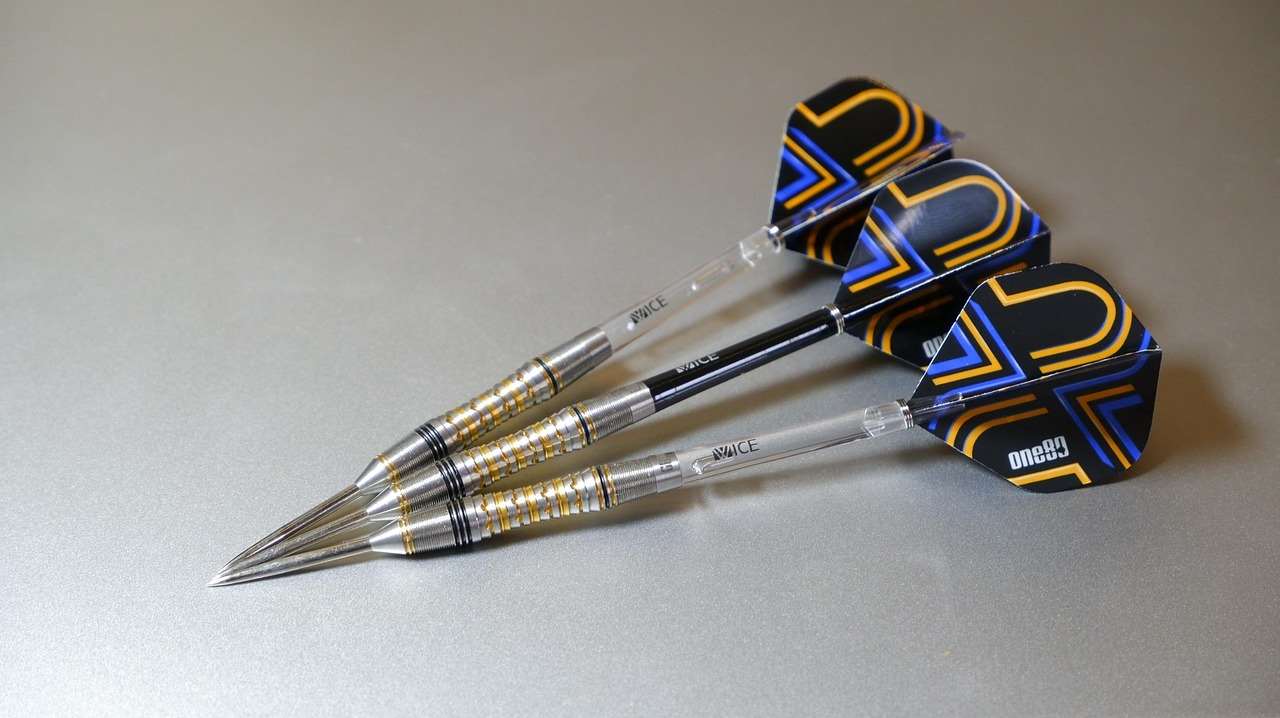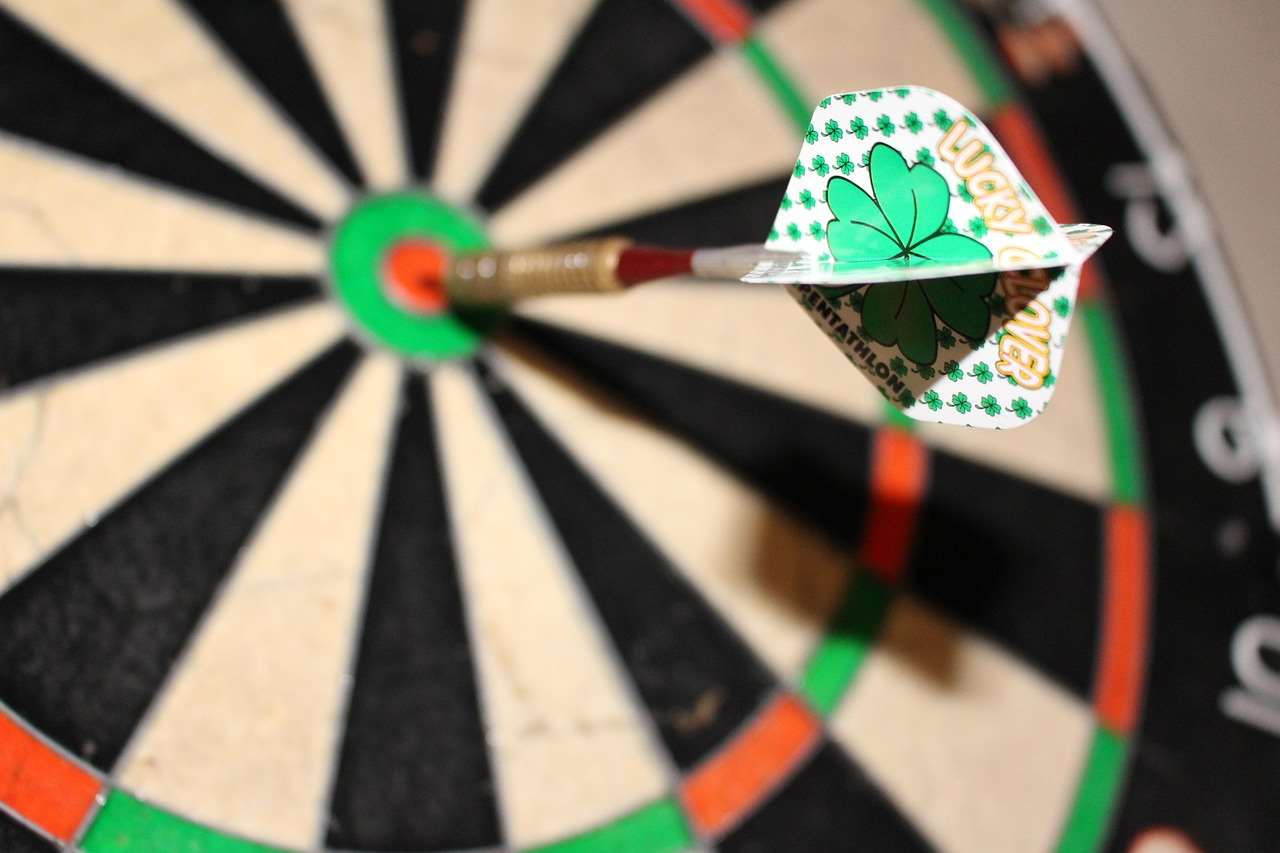The role of darts scorers on stage is to ensure the smooth flow of the game, accurately recording scores and calculating checkouts, contributing significantly to the professional darts experience. This article explores the multifaceted responsibilities of these unsung heroes, from maintaining accuracy to handling pressure, and their impact on the overall spectacle.
⚠️ Still Using Pen & Paper (or a Chalkboard)?! ⚠️
Step into the future! The Dart Counter App handles all the scoring, suggests checkouts, and tracks your stats automatically. It's easier than you think!
Try the Smart Dart Counter App FREE!Ready for an upgrade? Click above!
The Vital Role of Darts Scorers on Stage
Darts scorers on stage are far more than just number recorders. They are integral to the integrity and pace of the game, responsible for maintaining an accurate and up-to-date reflection of the match’s progress. Their precision under pressure, knowledge of checkout possibilities, and ability to work efficiently are crucial to creating a seamless and engaging viewing experience for both live audiences and television viewers. Understanding the intricacies of their work reveals a deeper appreciation for their contribution to the world of professional darts. We’ll look at the skills, responsibilities, and challenges these professionals face.

Key Responsibilities of a Darts Scorer
The core responsibilities of a darts scorer can be broken down into several key areas:
- Accurate Scorekeeping: This is paramount. Every dart thrown must be recorded correctly to ensure the integrity of the match. Scorers utilize specialized software and interfaces to track scores with precision.
- Checkout Calculation: Scorers need to be adept at quickly calculating potential checkouts, informing the players of their options. This requires a strong understanding of the game’s mathematics and strategic possibilities. Knowing all those checkouts is no easy feat, but tools like a Dart Counter App can help you practice!
- Match Management: Scorers contribute to the smooth flow of the game, ensuring that players are informed of their scores, remaining scores, and the required double to finish.
- Data Entry: Modern darts scoring often involves entering data into computer systems for statistical analysis and real-time display, providing valuable insights for commentators and viewers.
- Maintaining Professionalism: Scorers must maintain a calm and professional demeanor, even under pressure. They are expected to be impartial and avoid any behavior that could be perceived as biased or disruptive.
Skills and Qualities Needed for Darts Scoring
Being a successful darts scorer on stage requires more than just a knack for numbers. Here are some essential skills and qualities:
- Mathematical Proficiency: A strong understanding of basic arithmetic and mental calculation is essential for accurately tracking scores and determining checkouts.
- Attention to Detail: Even the smallest error can have a significant impact on the outcome of a match, so scorers must be meticulous and attentive to detail.
- Speed and Efficiency: The pace of professional darts can be fast, so scorers must be able to keep up and record scores quickly and efficiently.
- Pressure Management: Scoring can be a high-pressure environment, especially in crucial moments of a match. Scorers must be able to remain calm and focused under pressure.
- Communication Skills: Scorers need to communicate clearly and effectively with players, referees, and other officials.
- Knowledge of Darts Rules: A thorough understanding of the rules of darts is essential for ensuring fair play and resolving any disputes that may arise.
If you’re trying to improve your game, consider researching dart release tips to get a better feel for throwing.

The Technology Behind Modern Darts Scoring
Gone are the days of manual scoreboards and chalk. Modern darts scoring relies heavily on technology to ensure accuracy and efficiency. Specialized software programs are used to track scores, calculate checkouts, and display real-time match statistics. These systems often integrate with television broadcasts, providing viewers with valuable insights and enhancing their viewing experience. This technology also allows for the collection and analysis of vast amounts of data, which can be used to improve player performance and inform strategic decisions. The role of software has become indispensable in the modern game. The computerisation of darts scoring has significantly reduced the potential for human error, ensuring that matches are conducted with the highest level of accuracy. This has increased fan confidence in the integrity of the sport.
Scorers must be proficient in using this software and troubleshooting any technical issues that may arise. They are often trained on the specific software used by different darts organizations and tournaments.
The Pressure of Performing Under the Spotlight
Darts scorers on stage are not immune to the pressures of performing in front of a live audience and a television audience of millions. They must be able to maintain their focus and accuracy, even when the atmosphere is intense and the stakes are high. The potential for making a mistake is ever-present, and any error can have significant consequences for the players and the outcome of the match. The pressure can be particularly acute in crucial moments of a match, such as during a deciding leg or when a player is on a checkout. Scorers must be able to remain calm and composed, avoid distractions, and execute their duties with precision. Many professional scorers have developed coping mechanisms for dealing with the pressure, such as deep breathing exercises, visualization techniques, and positive self-talk. Their ability to handle pressure is a testament to their professionalism and dedication to the sport.
If you are new to the sport, learning darts game count up strategies might ease some of the pressure.
How to Become a Darts Scorer on Stage
While there’s no single, universally recognized path to becoming a darts scorer on stage, certain steps and qualifications can significantly increase your chances:
- Develop a Strong Understanding of Darts: This includes knowing the rules, scoring system, and checkout combinations inside and out.
- Practice Your Scoring Skills: Practice scoring matches manually and using scoring software to develop speed and accuracy.
- Gain Experience: Volunteer to score at local darts tournaments and leagues to gain experience and build your resume.
- Network with Professionals: Attend darts events and network with players, referees, and other officials to learn about opportunities and make connections.
- Seek Training: Some darts organizations offer training courses for scorers. These courses can provide valuable insights into the techniques, responsibilities, and expectations of a professional scorer.
- Apply for Positions: Keep an eye out for job postings from darts organizations, tournament organizers, and television broadcasters.
The Impact of Darts Scorers on Stage on the Viewing Experience
The presence of skilled and professional darts scorers on stage significantly enhances the viewing experience for both live audiences and television viewers. Their accurate scorekeeping ensures the integrity of the match, while their knowledge of checkout possibilities adds to the excitement and drama. The real-time data and statistics they provide give viewers valuable insights into the game, allowing them to appreciate the strategic nuances and individual player performances. The smooth flow of the game, facilitated by the scorer’s efficient match management, creates a more engaging and enjoyable viewing experience. In short, the scorer plays a crucial role in creating a polished and professional presentation of the sport. The accuracy and speed of modern scoring systems also allow for more dynamic camera angles and replays, further enhancing the viewing experience.
Common Mistakes Made by Scorers and How to Avoid Them
Even the most experienced darts scorers on stage can make mistakes, but understanding the common pitfalls can help minimize errors:
- Misreading the Dartboard: Double-check the number a dart lands on, especially when darts are clustered together. Use the software to verify.
- Incorrectly Calculating Checkouts: Practice checkout calculations regularly and double-check your work before announcing them.
- Entering Data Incorrectly: Pay close attention to the data entry process and double-check your entries before submitting them.
- Getting Distracted: Minimize distractions and maintain your focus on the match. Block out noise and avoid engaging in conversations with others.
- Failing to Communicate Clearly: Communicate clearly and concisely with players, referees, and other officials. Use unambiguous language and avoid jargon.
Pro tip: Make sure you have the appropriate darts tickets release date saved for your next event!

The Future of Darts Scoring on Stage
As technology continues to evolve, the role of darts scorers on stage is likely to change. We can expect to see even more sophisticated scoring systems that provide real-time data and analytics to viewers. Artificial intelligence (AI) could potentially be used to automate some aspects of the scoring process, such as checkout calculation and data entry. However, the human element will likely remain crucial for ensuring accuracy, managing the flow of the game, and communicating with players and officials. The role of the scorer may evolve into more of a data analyst and match manager, utilizing technology to enhance the viewing experience and provide valuable insights into the game. What won’t change is the need for scorers with a deep understanding of the sport. The future of darts scorers on stage is bright! Even when you are practicing, consider the winmau xtreme dartboard stand to add to your gear for training.
Darts Scorers on Stage: The Unsung Heroes of the Game
While the players rightfully receive the lion’s share of the attention, the darts scorers on stage are the unsung heroes of the sport. Their accuracy, efficiency, and professionalism are essential for maintaining the integrity of the game and creating an engaging viewing experience. They work tirelessly behind the scenes to ensure that matches run smoothly, providing valuable insights and enhancing the overall spectacle. Next time you’re watching a professional darts match, take a moment to appreciate the skill and dedication of the darts scorers on stage. They are an integral part of the darts family, and their contributions are essential to the success of the sport. You might even begin to consider double darts vroomshoop as a new competitive avenue.

Becoming a proficient scorer involves constant learning and practice. Even experienced pros continue to refine their knowledge of checkout possibilities and improve their speed and accuracy. Many resources are available to help aspiring scorers develop their skills, including online tutorials, training courses, and mentorship programs. The darts community is generally welcoming and supportive, providing ample opportunities for learning and growth.
Conclusion
In conclusion, darts scorers on stage are vital to the professional darts experience. Their precision, knowledge, and composure under pressure ensure fair play and enhance the spectator experience. Understanding their role highlights their significance in the sport’s integrity and entertainment value. If you’re interested in learning more about darts or perhaps even pursuing a career as a scorer, explore local darts leagues or online resources to deepen your knowledge and skills. Who knows, you might be the next darts scorer on stage!
Hi, I’m Dieter, and I created Dartcounter (Dartcounterapp.com). My motivation wasn’t being a darts expert – quite the opposite! When I first started playing, I loved the game but found keeping accurate scores and tracking stats difficult and distracting.
I figured I couldn’t be the only one struggling with this. So, I decided to build a solution: an easy-to-use application that everyone, no matter their experience level, could use to manage scoring effortlessly.
My goal for Dartcounter was simple: let the app handle the numbers – the scoring, the averages, the stats, even checkout suggestions – so players could focus purely on their throw and enjoying the game. It began as a way to solve my own beginner’s problem, and I’m thrilled it has grown into a helpful tool for the wider darts community.